With spring’s arrival, Lehigh’s varsity sports teams have been preparing for another competitive season. Between schoolwork, practice and everything else in between, Division I athletes have a lot of responsibilities. Additionally, for some, Lehigh is further away from home than it is for most other student athletes.
International student athletes can be found in a wide variety of teams across all seasons. For example, Lehigh alumnus Dan Taylor, ’15, an Alberta, Canada, native, was the captain of the men’s lacrosse team last season.
“(He’s) one of the most decorated lacrosse players in the history of the Lehigh lacrosse program,” coach Kevin Cassese said.
While Taylor has graduated, freshman attackman Tristan Rai is a new member of the men’s lacrosse team from Alberta. Rai, an Edmonton native, attended high school at Westminster School in Connecticut where he played three varsity sports. Knowing he wanted to play lacrosse in college, Rai began the recruitment process early.
“The way lacrosse recruiting works is that it’s more summer based, but for me, I couldn’t stay in the summer because I don’t live around there,” Rai said.
His solution was to play box lacrosse, or indoor lacrosse, in Canada with the hope of getting noticed by recruiters.
“It took until about my senior (year) summer that Lehigh finally offered me,” Rai said.
He took the chance and committed to Lehigh even though he wouldn’t be attending directly after his high school graduation. One condition was that he had to take a year off before college, so he took a post-grad year and stayed home to work.
Having gone to prep school in the U.S., Rai felt comfortable assimilating into both American and Lehigh culture. The main difference he noted was the conversion rate of the Canadian to U.S. dollar.
“Honestly, being Canadian and coming from the prep school world hasn’t really phased me at all,” Rai said.
Cassese appreciates the impact that international students have had on his team.
“I think it’s been a very positive influence,” Cassese said. “There are some minor nuances that bring some diversity to our team, and I think that is healthy for team dynamic.”
While Rai’s home is technically within driving distance, this isn’t the case for all international student athletes.
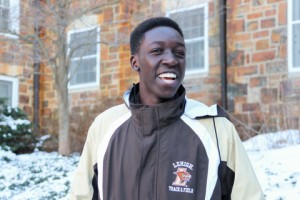
Freshman distance runner Jasper Chumba stands in front of Dravo Hall on Thursday, Feb. 11, 2016. Chumba came to Lehigh from Eldoret Gpo, Kenya. (Hallie Fuchs/B&W Photo)
Freshman Jasper Chumba is a member of the track and field team and calls Eldoret Gpo, Kenya, home. He found Lehigh through a program called the Kenyan Scholar Athlete Project, or KenSAP. KenSAP is an organization that helps gifted high school athletes through the college application process to gain admission to selective North American universities, according to Chumba. As a member of the program, Chumba received standardized test preparation and was trained to be a long distance runner.
“That was basically my first time running,” Chumba said.
During his time in the program he followed a strict study plan and trained in his sport for four months. When it came time to select schools to apply to, the head of the KenSAP program approached Chumba and suggested that Lehigh would be a good fit for him.
As an engineer, Chumba said he appreciated the programs that Lehigh offers, and the small campus community was something he wanted out of a university. Chumba traveled to the United States for the first time last summer to begin his college career.
“I arrived here before orientation because the cross country team was already here so I came to join them for the summer session,” Chumba said.
During this preseason period, Chumba explained how he was able to make connections with his fellow teammates and coaches.
“I think that being an international student comes with its challenges,” he said, “but it’s kind of cool to be in a good environment and be in a better place and get that better education, because that is why I came here.”
Chumba has yet to travel back to Kenya since preseason last summer, but he said having the support of his teammates and coaches has eased his transition.
“Having the team, they really make you feel comfortable. You have a small family and they really are there for you,” Chumba said.
He said the support system his team has provided him with has been influential in his transition to Lehigh, whether it’s helping him adjust to the cold winter months or explaining the culture of American sports.
However, Chumba has yet to compete in any official Lehigh track and field events due to missing legal documents from his home country. Until the documents are cleared with the NCAA, Chumba is forced to sit out.
“I have asked them several times to help me get it, but it hasn’t gone through yet,” Chumba said. “But it will probably go through by the end of this month.”
A fellow member of the track and field team, Beilin (Mike) Zhang, is a short distance sprinter from Qingdao, China. Unlike Chumba, Zhang had previously visited the United States in the greater Philadelphia area before applying to colleges.
When he arrived to Lehigh, Zhang joined the Lehigh International Peer Program. He credits his peer-mentor, Ryan Grace, another member of the track team, for making him feel supported while being so far away from home. Zhang explained that one of the challenges he faces as an international student — and as an athlete — is the language barrier.
“My English sometimes brings me trouble, but with time moving forward, I feel better both in class and communicating, as well as making friends with my teammates,” Zhang said.
He also reiterated the sense of family among the track and field team and credits the program for enriching his college career.
“I think by joining the track team, I feel proud and the practice does enrich my life,” Zhang said. “If I didn’t join the team, I may lose the opportunity to enhance myself through practice.”
Compared to training in China, Zhang gave examples of some of the differences between the resources available to athletes at home and here on campus. He said at home, they only have one coach, Dawei Song. He credits Song for motivating him throughout his track career.
Zhang pointed out another major difference between China and the United States: sports medicine was not used at his high school. He said that people would get hurt playing sports but would have to deal with the injuries on their own.
Despite these differences, Zhang values being a member of the track and field team not only for the athletic opportunities, but for the social aspects as well.
“Being on the team made me more friends and fuse in the U.S. culture quicker,” Zhang said. “Being on the track (team) we encourage each other to push harder and achieve more, while in life, we enrich each other’s life and hang out.”
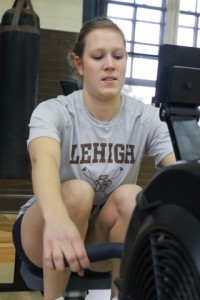
Sophomore rower Vita Vovk practices on the rowing machines in Taylor Gym on Tuesday, Feb. 9, 2016. Vovk came to Lehigh from Ljubljana, Slovenia. (Madison Welker/B&W Staff)
Unlike Rai, Chumba and Zhang, sophomore Vita Vovk was not recruited for her sport – rowing – but actually tried it for the first time at Lehigh. In her hometown of Ljubljana, Slovenia, Vovk grew up as a competitive swimmer and was a member of the Slovenian National Swim Team. She said she was a swimmer for 10 years and thought she was going to swim in college.
However, she ultimately decided to not pursue her swimming career at the collegiate level. Vovk knew she wanted to participate in sports at some level during her time at college and even joked about bringing her tennis racket to school.
Then a friend from home suggested that she try rowing. The former assistant coach for the women’s crew team, Katherine Menge, reached out to Vovk about trying out for the team.
“I instantly loved it,” Vovk said.
She has remained on the team ever since then. Vovk notices the difference between team mentalities in the U.S. as compared to Europe.
“It gave me a lot of insight on how American culture works,” Vovk said. “I would say in Europe it’s very individualistic. I feel like team sports are very big in America, and I love the team environment and the ‘team first’ mentality.”
Vovk has been able to row back at home, but not to the same extent that she is able to here on campus. She rowed a single in Slovenia over the summer at her local club, but she said it is not like her experience in the States.

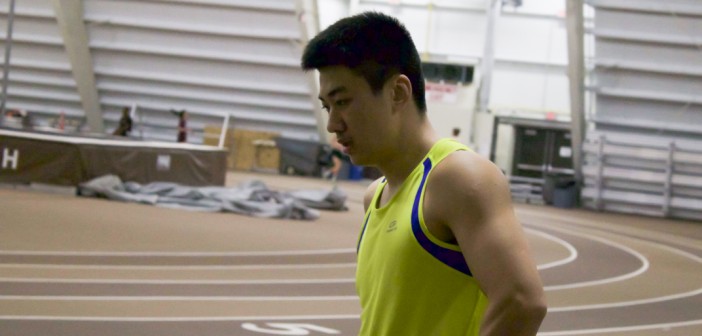

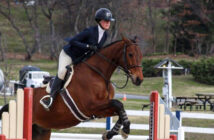

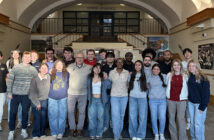
Comment policy
Comments posted to The Brown and White website are reviewed by a moderator before being approved. Incendiary speech or harassing language, including comments targeted at individuals, may be deemed unacceptable and not published. Spam and other soliciting will also be declined.
The Brown and White also reserves the right to not publish entirely anonymous comments.